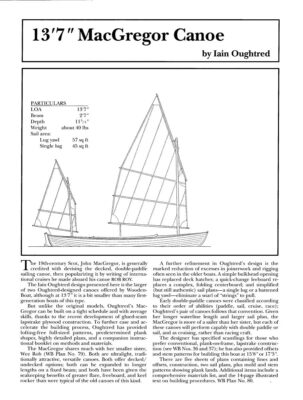
13'7" MacGregor Canoe
The original print version of this article can be viewed as a PDF or purchased from the WoodenBoat Store.
Join to view PDF Purchase MacGregor Canoe PlansThe 19th-century Scot, John MacGregor, is generally credited with devising the decked, double-paddle sailing canoe, then popularizing it by writing of international cruises he made aboard his canoe ROB ROY. The Iain Oughtred design presented here is the larger of two Oughtred-designed canoes offered by WoodenBoat. Although at 13′ 7″, it is a bit smaller than many first-generation boats of this type.
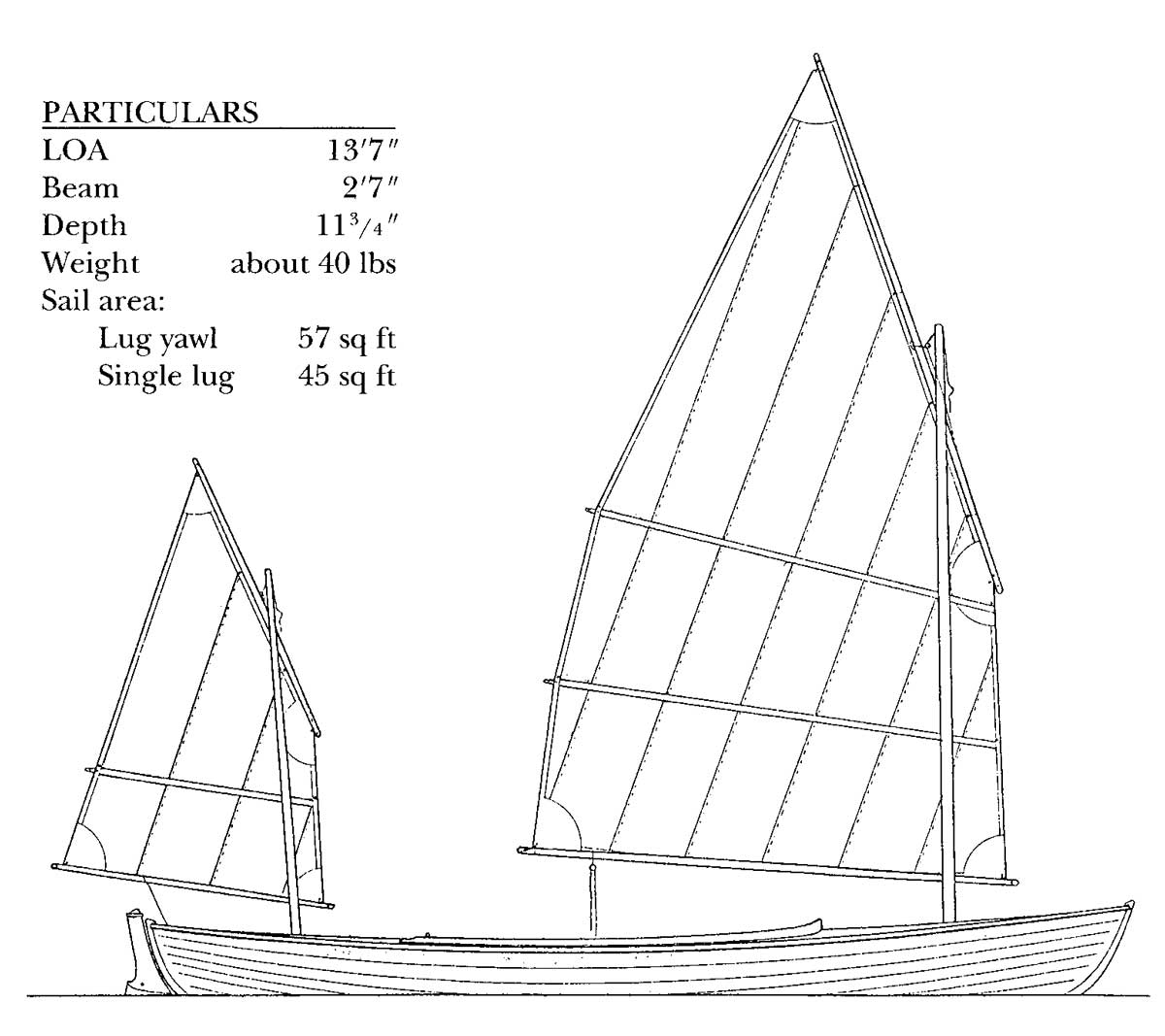
The MacGregor canoe can sail with a single balanced lug or rigged as a yawl.
Unlike the original models, Oughtred’s MacGregor can be built on a tight schedule and with average skills, thanks to the recent development of glued-seam lapstrake plywood construction. To further ease and accelerate the building process, Oughtred has provided lofting-free full-sized patterns, and a companion instructional booklet on methods and materials.
The MacGregor shares much with her smaller sister, Wee Rob (WB Plan No. 79). Both are ultralight, traditionally attractive, versatile canoes. Both offer decked/undecked options; both can be expanded to longer lengths on a fixed beam; and both have been given the seakeeping benefits of greater flare, freeboard, and keel rocker than were typical of the old canoes of this kind.

Adjust mold spacing and stem profiles to build MacGregor at 13′ 7″, 15′ 8″, or 17′ 3″.
A further refinement in Oughtred’s design is the marked reduction of excesses in joinerwork and rigging often seen in the older boats. A simple bulkhead opening has replaced deck hatches; a quick-change leeboard replaces a complex, folding centerboard; and simplified (but still authentic) sail plans — a single lug or a battened lug yawl — eliminate a snarl of “strings” to pull.
Early double-paddle canoes were classified according to their order of abilities: paddle, sail, cruise or race. Oughtred’s pair of canoes follows that convention. Given her longer waterline length and larger sail plan, the MacGregor is more of a sailer than her sister, but each of these canoes will perform capably with double paddle or sail, and is cruising, rather than racing craft.
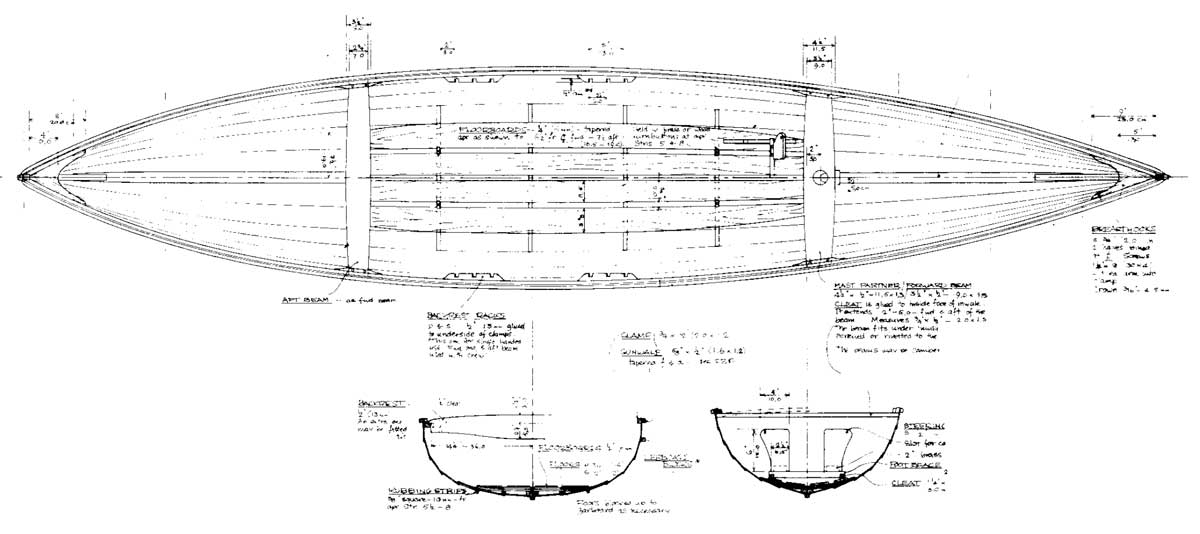
Build MacGregor undecked for lightweight or half-decked for big water.
The designer has specified scantlings for those who prefer conventional plank-on-frame, lapstrake construction (see WB Nos. 36 and 37). He has also provided offsets and stem patterns for building this boat at 15′ 8″ and 17′ 3″. The MacGregor Sail-Paddle Canoe design package includes five sheets of plans containing lines and offsets, two sail plans, plus mold and stem patterns showing plank lands. Additional items include a comprehensive materials list and the 14-page illustrated text on building procedures (WB Plan No. 80).
Completed 13′ 7″ MacGregor Sail-Paddle Canoe Image
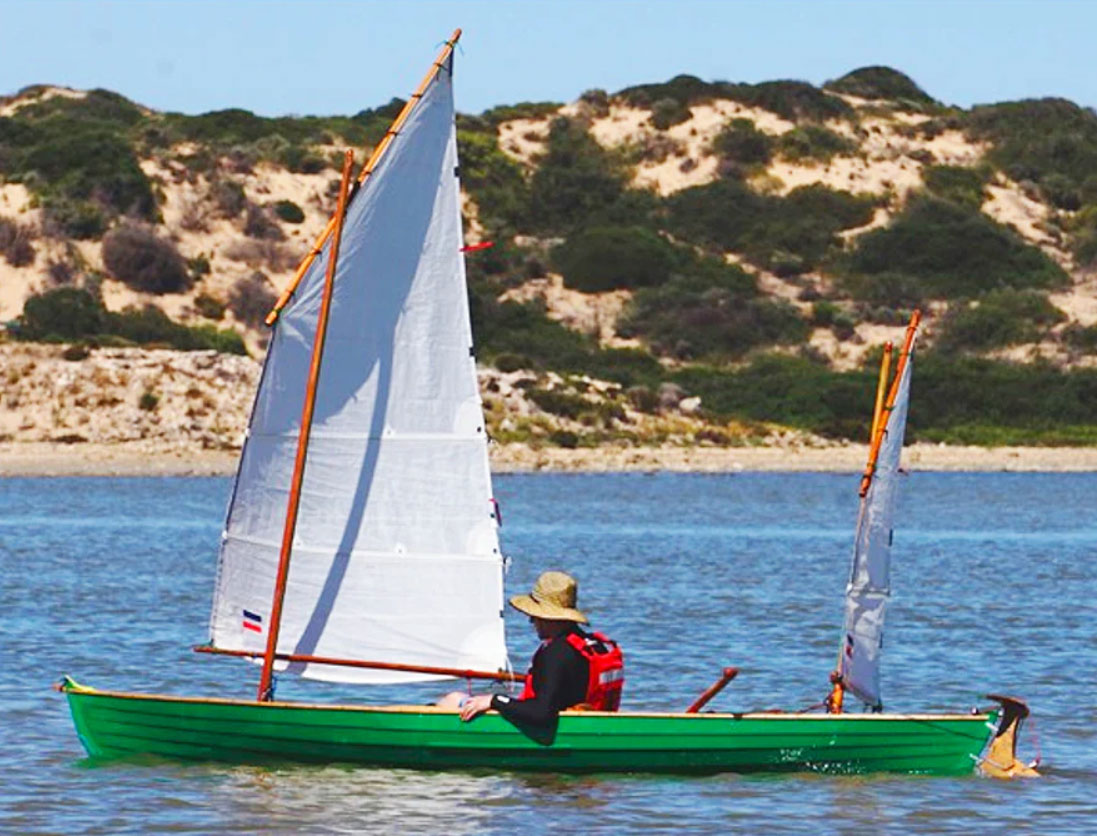
While larger than the Wee Rob, Iain Oughtred’s MacGregor canoe is still a bit smaller than many first-generation boats of this type.

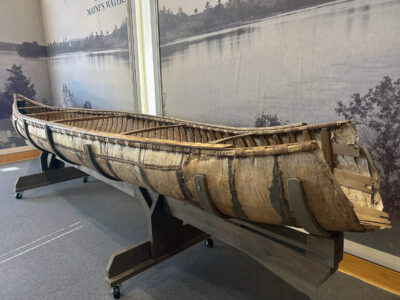
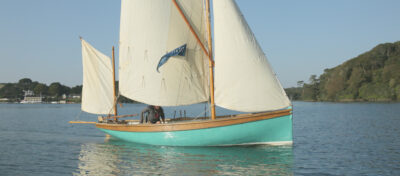
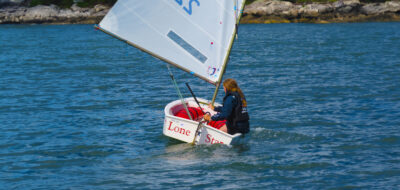
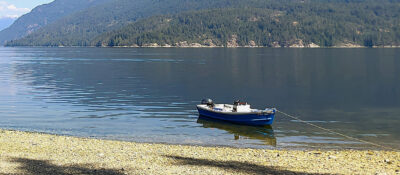
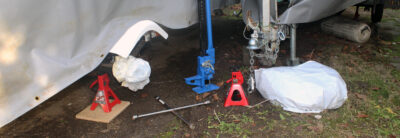
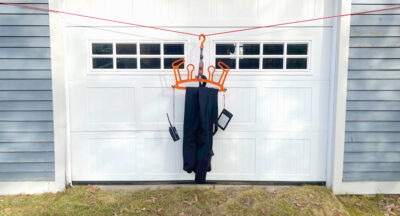
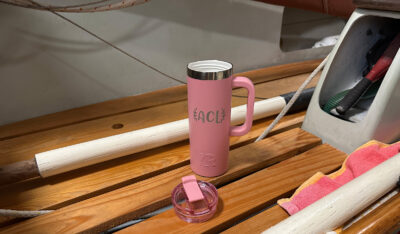
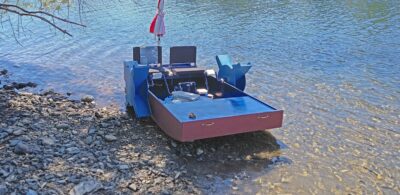
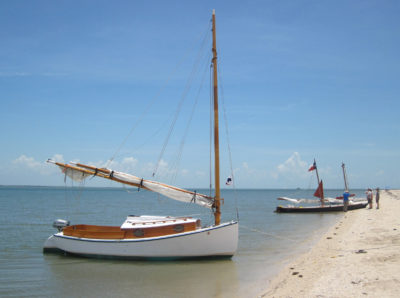
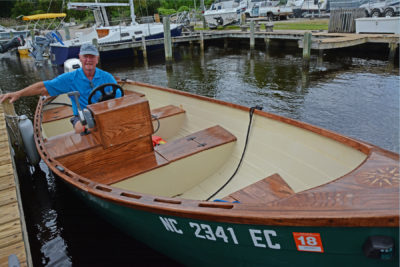
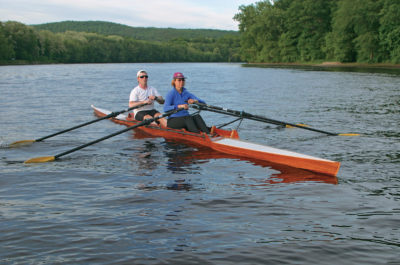
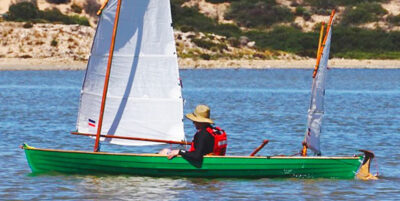
I built this boat with a single lug sail about thirty years ago and sailed it almost every summer since that time. The foot pedal steering has never failed and in a light to moderate wind on a small lake {Jones Pond in Rainbow lake NY} it is a lot of fun. You always have your paddle for “Auxiliary Power” or coming about in a tough wind. The acrobatics of flipping the lee board side to side may be easier with two boards, but only use the one on lee ward then pull it, come about and use the other board. I’ve only used one but as I age, I think about what may be easier. It is also a beautiful paddling canoe. Ian Oughtred designs have a certain magic and this boat caught a lot of it!